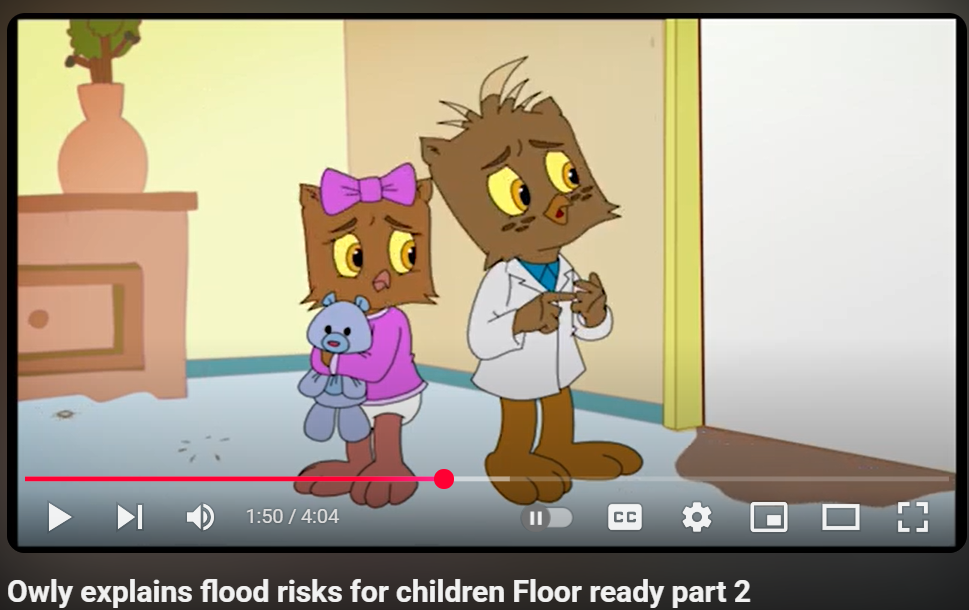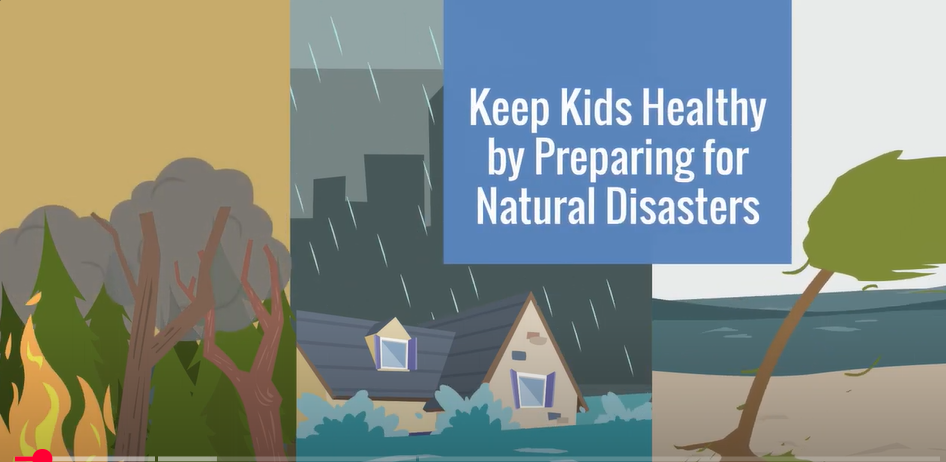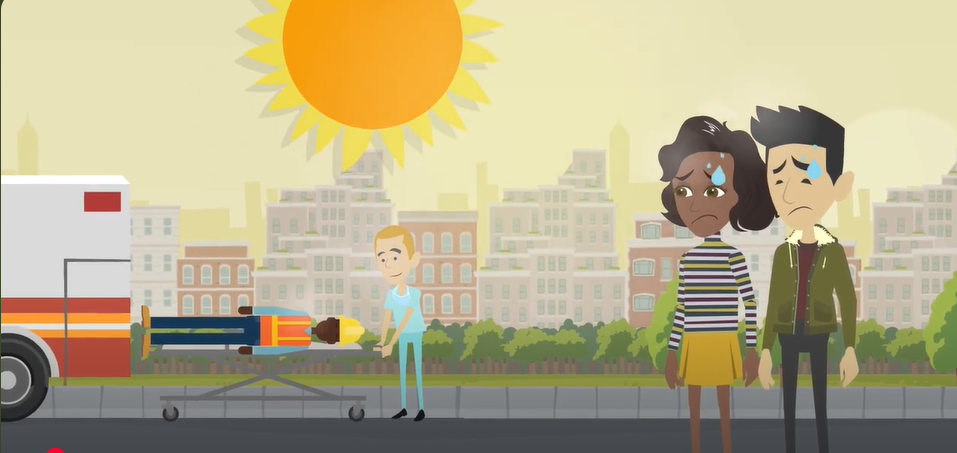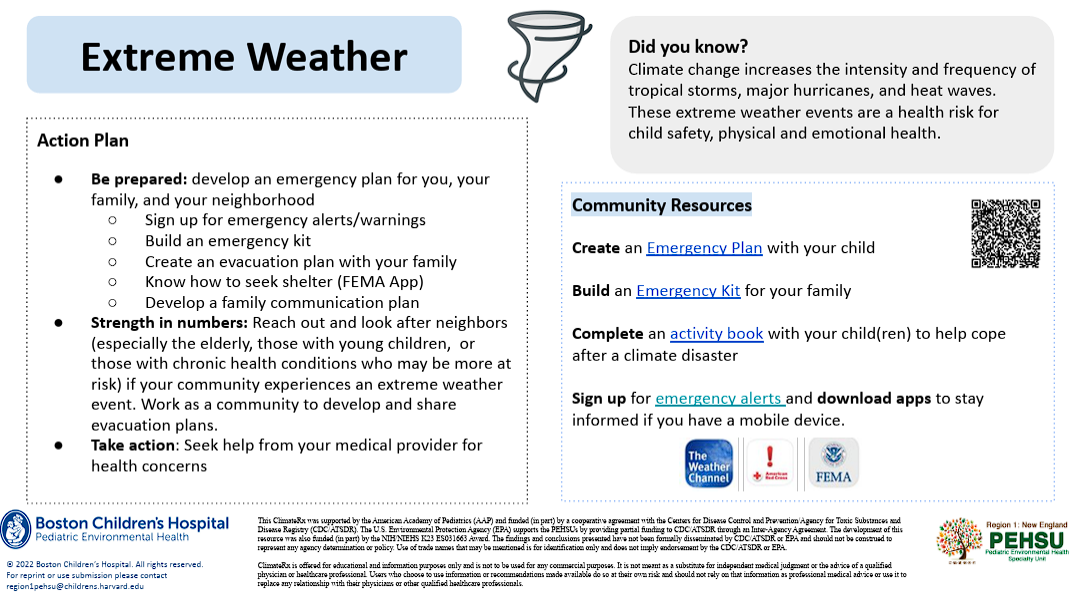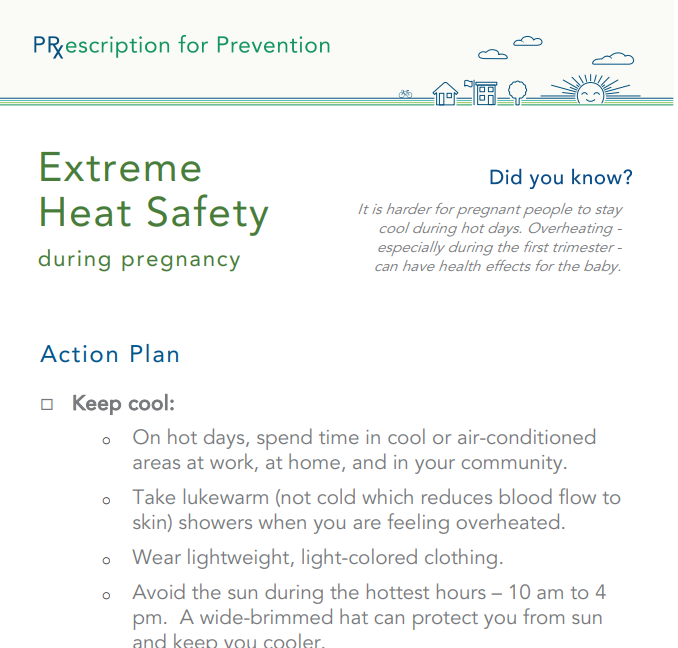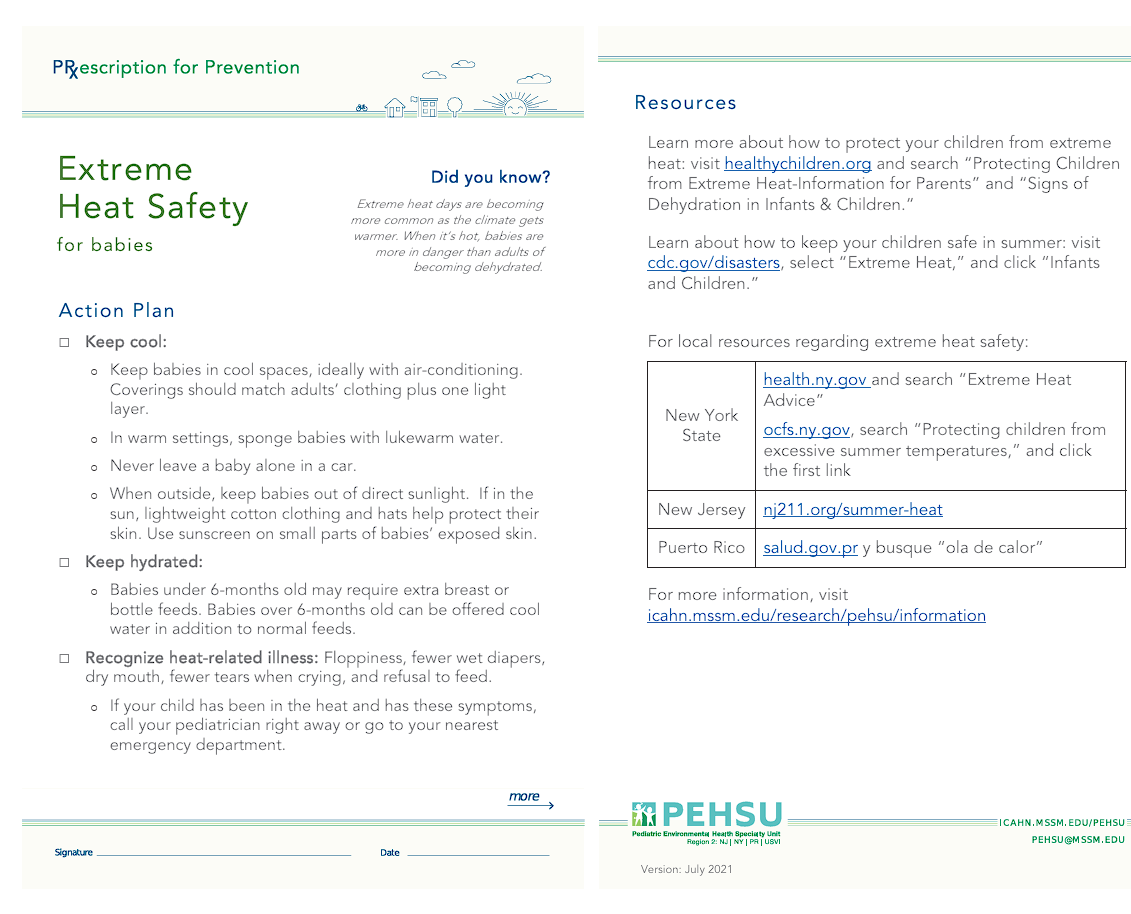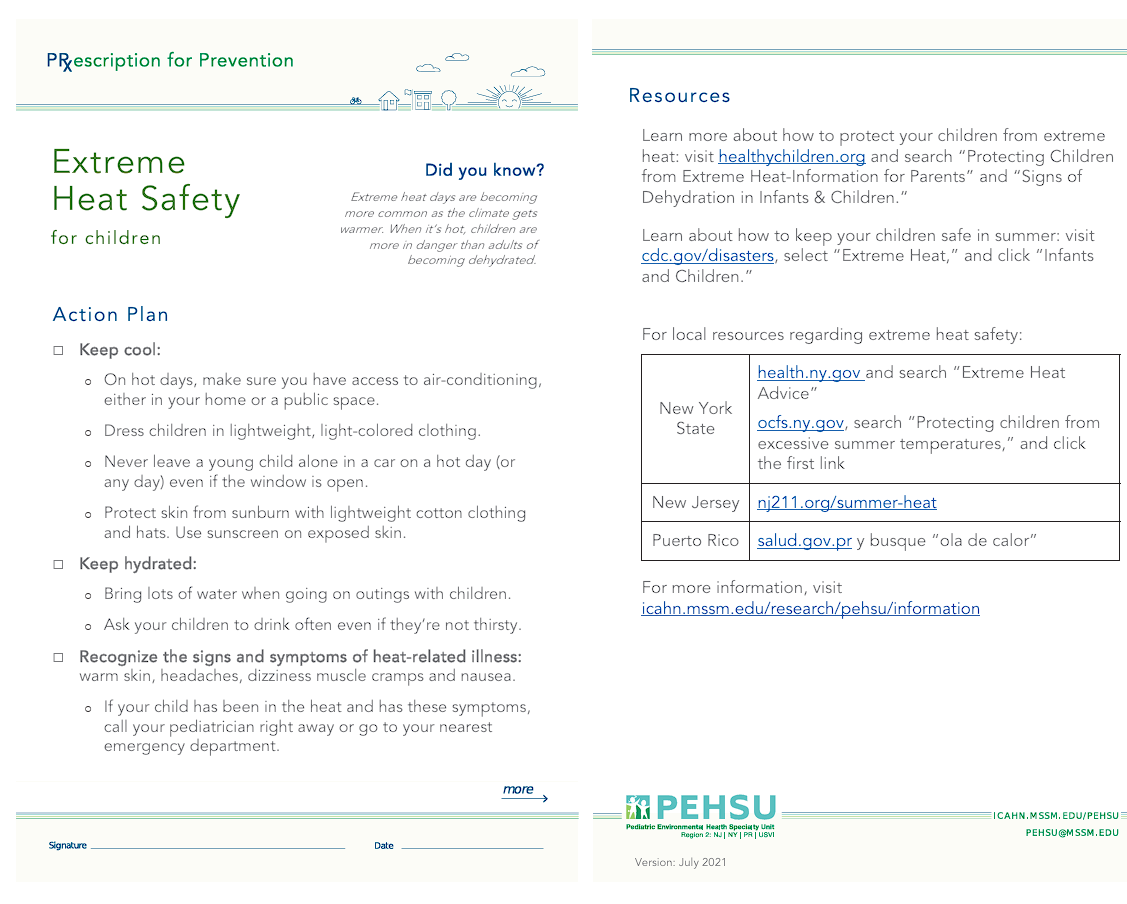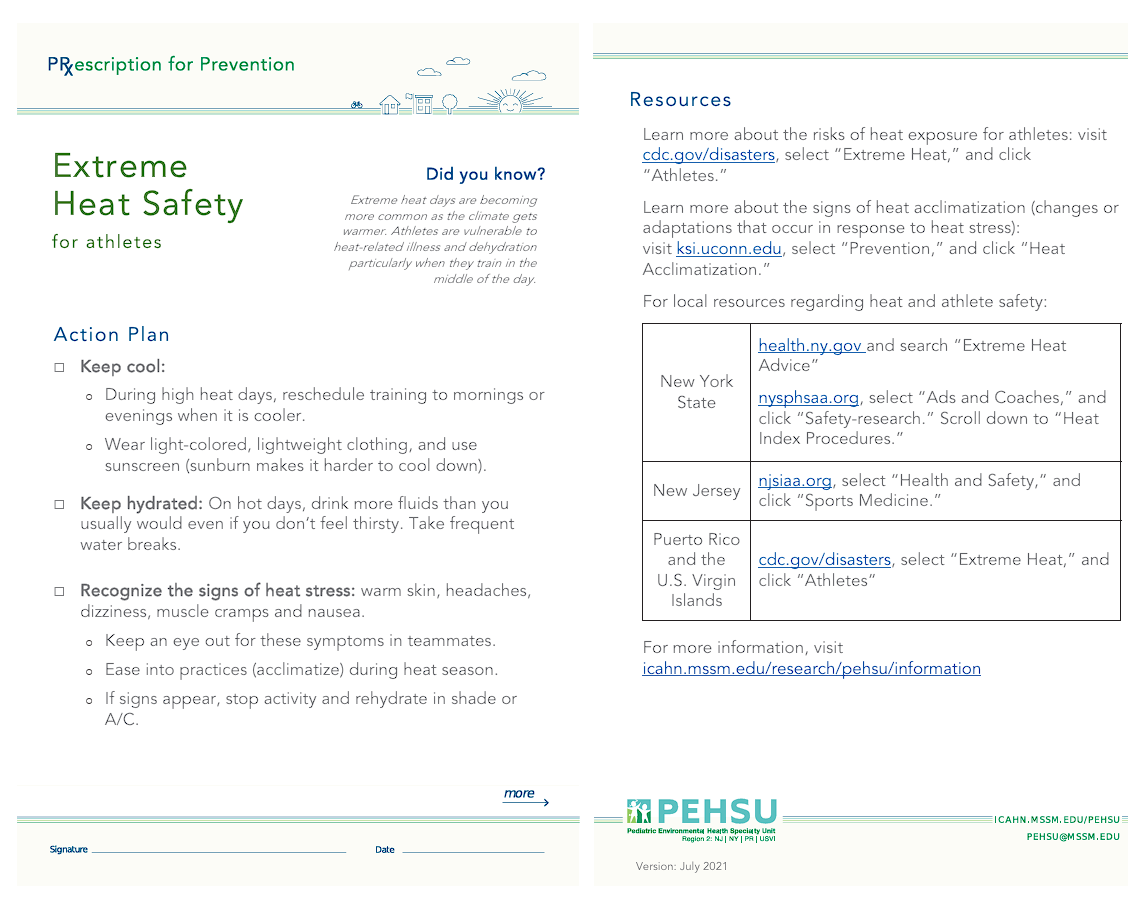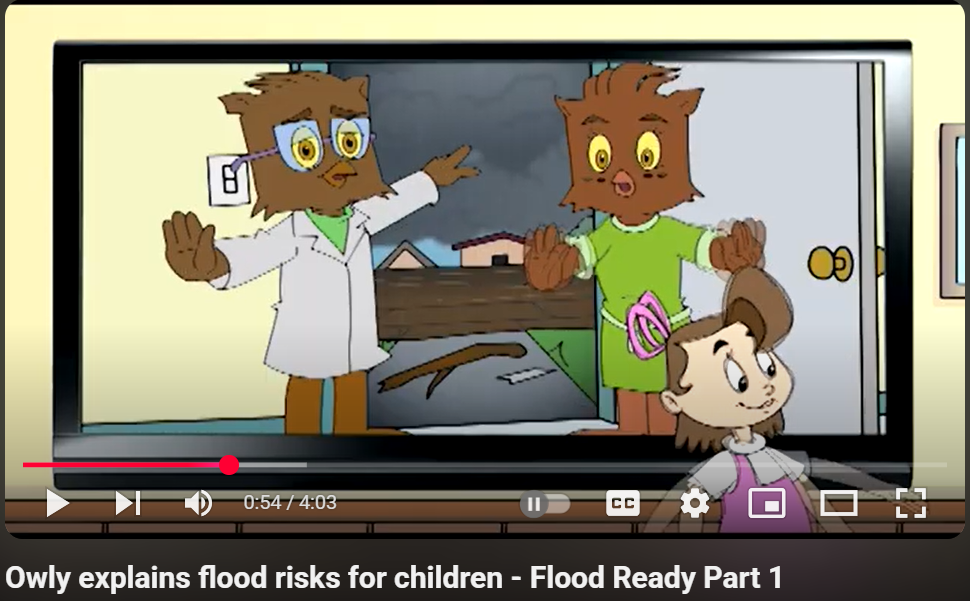
Extreme Weather (for Families & Communities)

Hurricanes, tropical storms, flooding, heat waves and wildfires are all extreme weather-related events and disasters that require special considerations when caring for infants, children, adolescents and pregnant women. Extreme weather events are a health risk for children and pregnant women’s safety, physical and emotional health.
The Good News: Families and communities can help prevent or decrease exposure to contaminants caused by and/or the health effects of extreme heat waves and other weather-related events and disasters.

27
The number of weather-related disasters in 2024 across the United States, resulting in 568 deaths and impacting approximately 3 million US residents.
11
The number of hurricanes that occurred in 2024 in the U.S.
70
The number of days the temperature was 110 degrees or higher in Phoenix, Arizona in 2024.
References
- NOAA: 2024 in Summary. Available here.
- NOAA: Atlantic hurricane season races to finish within range of predicted number of named storms. Available here.
- AXIOS: 2024 Hottest Year. Available here.
In Your Environment
How Can Families/Communities Prepare Before a Weather-Related Event or Disaster?
Extreme weather is a year-round threat but can be of extra concern between July and December in many places. If you live in an area that tends to have weather such as hurricanes or extreme heat waves, you can take steps ahead of time to prepare. Make an emergency plan for you, your family, and your neighborhood, and build an emergency kit. Sign up for emergency alerts and warnings. Know how to seek shelter or help if needed (see Additional Resources section for the FEMA App). Reach out and look after neighbors (especially those who may be more at risk: the elderly, young children, people who are pregnant, or those with chronic health conditions) if your community experiences an extreme weather event. Work as a community to develop and share evacuation plans.
What to Look For
What are the Health Effects of Extreme Heat?
Extreme heat exposure is the leading weather-related cause of death in the US. Adults need to pay special attention to children during extreme heat because they are less able to regulate temperature. Extreme heat can also have significant impacts on pregnancy outcomes, so make sure to stay cool! Symptoms of heat-related illness include headaches, muscle cramps, fevers, excessive sweating, dizziness or confusion, and may need medical attention. Heat-related illnesses, like heat exhaustion or heat stroke, happen when the body is not able to properly cool itself. Usually, the body normally can cool itself by sweating, but during extreme heat, this might not be enough. In these cases, the body temperature rises faster than it can cool itself down. This can cause damage to the brain and other vital organs. Pregnant women are at greater risk for heat exhaustion and heat stroke than non-pregnant women.
What are the Health Effects of Flooding?
Flooding can have many effects on children’s health. When floods happen, there is a risk of injury or drowning. After these events happen, there are other health risks because of possible contamination of local water supplies likethe spreadingof infections. It is also possible to get carbon monoxide poisoning when using emergency generators. Low-income families may have greater exposure to hazards in the aftermath if they can’t access remediation in a timely manner. Flooding in buildings can lead to the growth of mold, which is harmful for our health, especially for those with conditions like asthma. Check out our mold page for families and communities for more information. Flooding is scary for children and can have affect their mental health, especially when it leads to changes to their home, school, or family routines. Help kids feel safe and supported after flooding or other extreme weather events by talking with them and keeping routines whenever possible.
Actions To Take
What Can Families and Communities Do to Lower their Exposure to the Harmful Health Effects of Extreme Heat?
Families and communities should prepare as best as they can for extreme heat events. First, learn how to know when an extreme heat event is happening in your area. Ask your medical provider if you have specific health concerns. To lower your or your child’s risk of getting sick from extreme heat:
- Wear protective clothes (loose, light-colored clothing, hats, sunglasses, SPF-lined).
- Wear sunscreen SPF > 30, (reapply at least every two hours and after swimming/sweating).
- Avoid outdoor activity during peak sun (10 a.m. to 4 p.m.) and try to find shady areas.
- Drink lots of fluids to stay hydrated and take breaks to rest often.
- If your home does not have air conditioning, find a nearby building that does. Libraries and shopping malls can be great places for a cool retreat from the heat. Some pet stores serve as cooling centers for families to come with their pets.
- Never leave children in vehicles alone, not even for a minute.
What Can Families and Communities Do to Lower their Chance of Having Harmful Health Effects of Flooding from Hurricanes?
Seek help from your child’s medical provider for flooding-related concerns. Stormwater can be a source of infections, chemical hazards, and cause injury.
- Use a Flood Zone Mapping Tool to see if your home is located within a Federal Emergency Management Agency (FEMA)-designated flood zone or flood plan (see Additional Resources section).
- Do not swim after storms.
- Have an emergency plan in place and learn how to safely clean up after flooding.
- Never involve children in the clean-up process after flooding.

PEHSU Extreme Weather Videos
PEHSU Extreme Weather Fact Sheets
Editorial Review Acknowledgements: Marissa Hauptman, MD, MPH, FAAP; James Earl Schier Nolan, MPH; Perry Sheffield, MD, MPH, FAAP; Shalini Shah, DO, FAAP
Contact Your Region – find your regional PEHSU experts to contact them for more information about the health effects of extreme weather.
